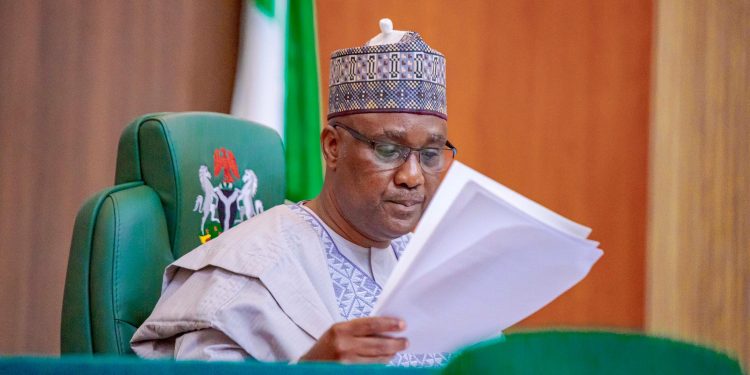The Nigerian government has urged the United States to extend the African Growth and Opportunity Act (AGOA) beyond its current 2025 deadline. This call was made by Hon. Tajudeen Abass, Speaker of the Nigerian House of Representatives, during a USAID and Prosper Africa workshop for stakeholders in Nigeria’s textile and apparel industry.
Abass emphasized the importance of AGOA in fostering trade between Africa and the U.S., allowing African countries to diversify their economies beyond raw materials by gaining access to U.S. markets. He noted that while Nigeria, as one of the key beneficiaries, has the potential to capitalize on AGOA’s opportunities, many Nigerian businesses remain unaware of the program.
Raising Awareness and Extending the Deadline
To address this challenge, Abass stressed the need for increased awareness among Nigerian businesses to fully benefit from AGOA. He called for an extension of the program to give more time for businesses in Nigeria and across Africa to take advantage of the framework.
“We must increase knowledge and understanding of AGOA within our business community so that more Nigerian companies can benefit from this value-added framework,” Abass stated. He urged the U.S. government to consider extending AGOA’s 2025 deadline, noting that such an extension would not only benefit African economies but also align with U.S. strategic interests by creating new markets and promoting regional stability. He added that the U.S.-Nigeria Parliamentary Friendship Group would advocate for this renewal.
Diversifying Nigeria’s Economy
Melissa Jones, USAID Nigeria Mission Director, highlighted the importance of diversifying Nigeria’s economy, especially in light of current economic challenges such as rising fuel prices, inflation, and food insecurity. She explained that the AGOA workshop focused on the textile and apparel industry, a sector with significant potential to drive Nigeria’s exports beyond oil.
“The apparel and textile industry presents an important opportunity to diversify, create jobs, and contribute to Nigeria’s inclusive growth,” Jones noted. She praised Prosper Africa’s role in uniting U.S. government efforts to help African nations, including Nigeria, move forward with economic diversification.
Key Facts About AGOA
Since its inception in 2000, AGOA has been a key component of U.S. economic policy with Africa, providing sub-Saharan African countries duty-free access to over 1,800 products in U.S. markets. In addition, more than 5,000 products qualify for duty-free access under the Generalized System of Preferences program.
AGOA’s eligibility requirements include establishing a market-based economy, upholding the rule of law, political pluralism, and ensuring due process. Countries must also eliminate barriers to U.S. trade, combat corruption, reduce poverty, and protect human rights.
In 2015, the U.S. Congress extended AGOA to 2025. As of 2024, 32 countries, including Nigeria, are eligible for AGOA benefits.
The call for an extension of AGOA highlights the potential for deeper trade ties between Africa and the U.S. It also reinforces the need for more awareness and participation from African businesses to unlock the full benefits of the trade framework, particularly in sectors like textiles and apparel, which have the capacity to drive economic growth and diversification across the continent.










